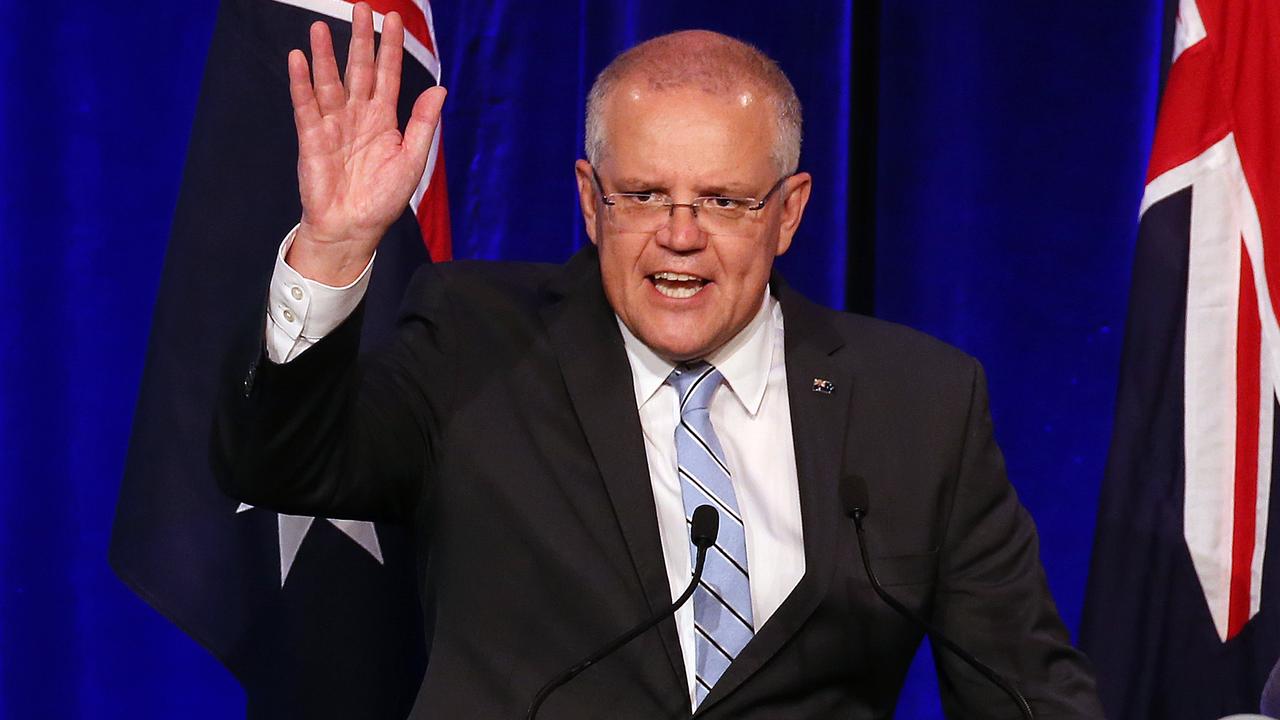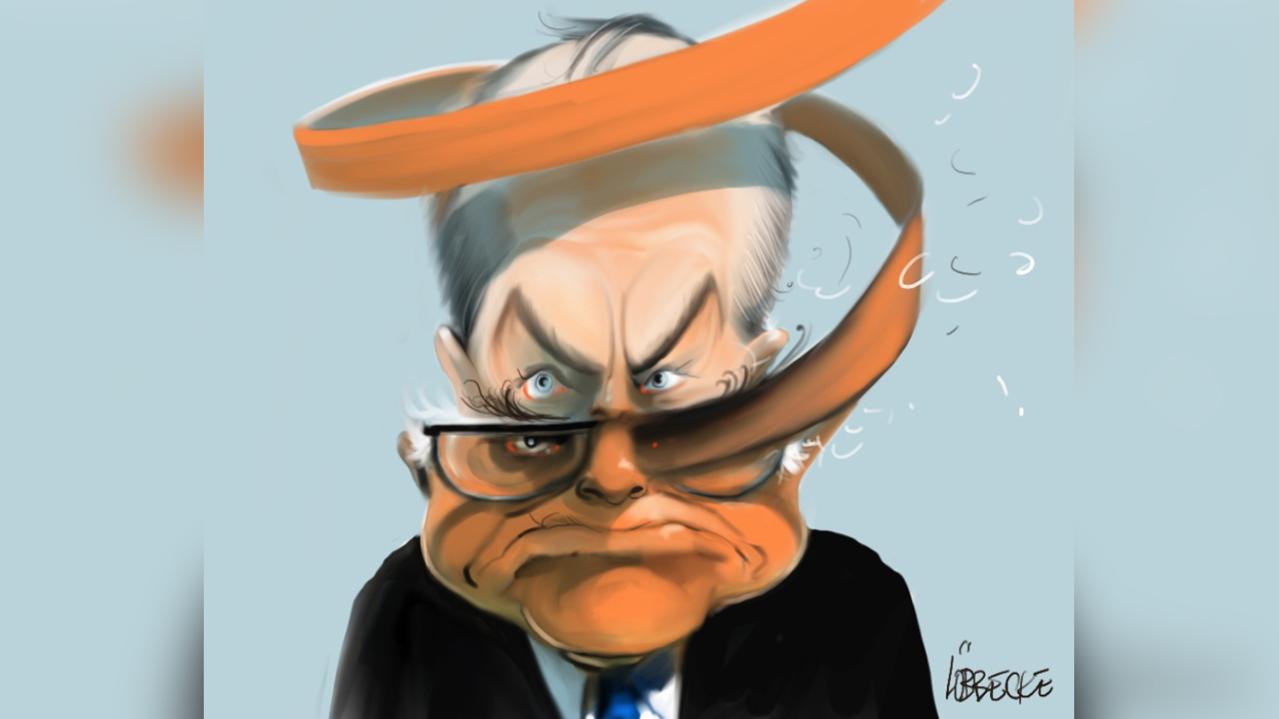THIS is the year of decision and delivery for the federal government. That was the rhetoric Julia Gillard employed to start 2011, setting expectations beyond the capacity of her minority government.
As a consequence we are bearing witness to a mad scramble to pass legislation before the month is out. The government knows that if it doesn't it will be attacked for over-promising and under-delivering. Those attacks are likely anyway, of course. The year is almost at a close and the carbon tax is only now passing into law and the mining tax and plain packaging bills have just been placed on the Parliament House notice paper for further scrutiny.
While it is true that the opposition is being obstructionist in the Senate, it is odd that the Greens, after years of bleating about debate being guillotined, are now delivering Labor the numbers it needs to do just that.
Setting expectations so high the government looks like a failure has been turned into an art form by the current government. From education revolutions to the fixing of public hospitals to addressing the greatest moral challenge of our time, Labor has often sought to inspire with its political rhetoric.
It never learned the important lesson of transforming from opposition to government. As an opposition that had been out of power for nearly 12 years, in 2007 it was understandable that a left-of-centre party would seek to inspire with its plans for government. But once in power, in the modern world of professional political communication, Labor needed to moderate its language, reduce the number of items on its agenda and make achievable goals.
It never did that in its first term and now only a year into term two it once again has too many half-baked ideas on the go.
Yet the minority Labor government - on purely political terms - has done pretty well this year. By definition any minority government does well just to survive. The PM has kept her alliances intact. Soon she will have legislated a price on carbon, the scope of which will be a world first.
Unfortunately, doing so has also made her toxic in the electorate. The carbon tax backflip and the pokies reforms have harmed her in unique ways. The first was a dent to her credibility. Breaking an election commitment in order to negotiate her way into power with the Greens is something many voters won't forget. On the later issue of pokies, while polls consistently show that a comfortable majority of Australians want action, pubs and clubs are well represented in Labor's heartland and they have been bitter in their opposition to the reforms.
Kevin Rudd knows this, which is why he deliberately has avoided endorsing the policy. For him it may be the wedge that turns speculation about a comeback into something more.
Speculation about a Rudd challenge before the year is out is rife among journalists and sections of the government. The opposition is certainly happy to talk up the possibility, although shadow ministers would far prefer the Prime Minister to survive, given her polling problems.
The powerbrokers on the Labor side so far are united in their opposition to a Rudd return. But many backbenchers feel that is a simple case of self-interest. It was the powerbrokers who rolled Rudd in the first place, and the former PM isn't known for his Christian sense of forgiveness.
The twin Newspolls due before the end of the parliamentary year couldn't come at a worse time, and if so much as one powerbroker removes his support for Gillard, it will start an avalanche of movement that will either hand the prime ministership to Rudd or another candidate - probably Stephen Smith.
Next week's Newspoll needs to be positive for Gillard insofar as if she suffers a dip in support it will fuel leadership talk all the way through to the final sitting week - the traditional killing season in federal politics.
Then in that final sitting week Newspoll kicks the week off on either Monday or Tuesday. A poor result for Gillard would see what looks unlikely at the moment - a Rudd return - morph into a distinct possibility. Events could move fast.
The crystal ball changes completely, however, if next week's Newspoll gives Gillard a bounce on the back of her strong condemnation of Qantas and the discussions surrounding industrial relations: one of Labor's issues of strength.
A good result would see her through this year and give her a chance to use the summer to rebuild her trust with the electorate.
The key in any such process will be to avoid further promises, and further raising of expectations. Nothing new should enter the political discourse for Labor between now and polling day. The discussion in 2012 needs to focus on, you guessed it, delivering on decisions already made, nothing more.
THE Liberal Party is at a crossroads when it comes to industrial relations. Tony Abbott has shown a very un-Liberal like reluctance to embrace IR reform. He rejects any suggestion he would bring back Work Choices, which is fair enough. But he goes much further. He has ruled out individual contracts and looks paralysed when it comes to spelling out an alternative to the Fair Work Act.
The Qantas dispute has unearthed problems with the act and Abbott knows it. Business leaders are privately urging Abbott to present a Liberal alternative. If he is prepared to roll back every other government piece of legislation but not the Fair Work Act, it leaves me wondering why he doesn't change the Liberal Party's name to the Conservative Party while he is at it.
Peter van Onselen is a Winthrop professor at the University of Western Australia.



